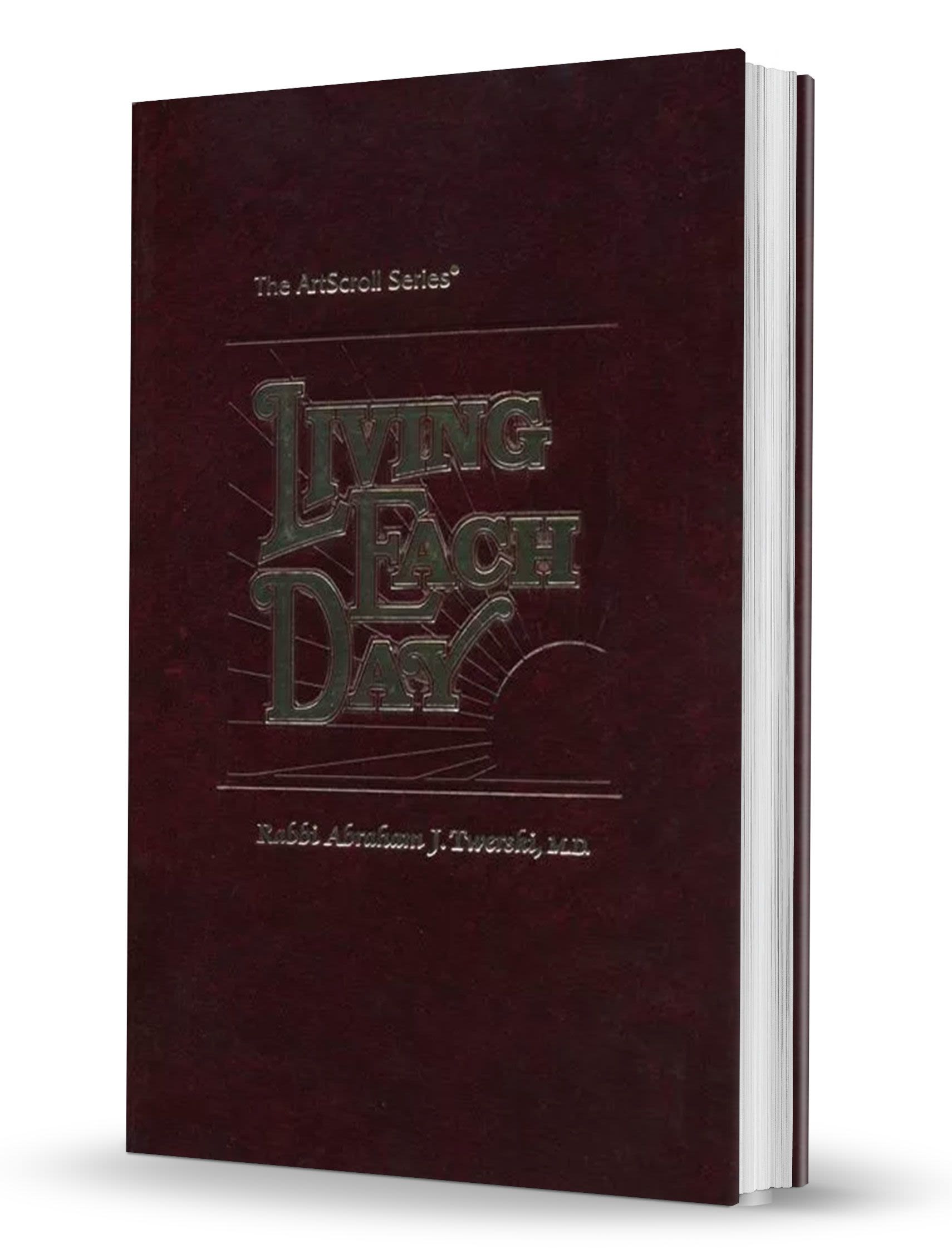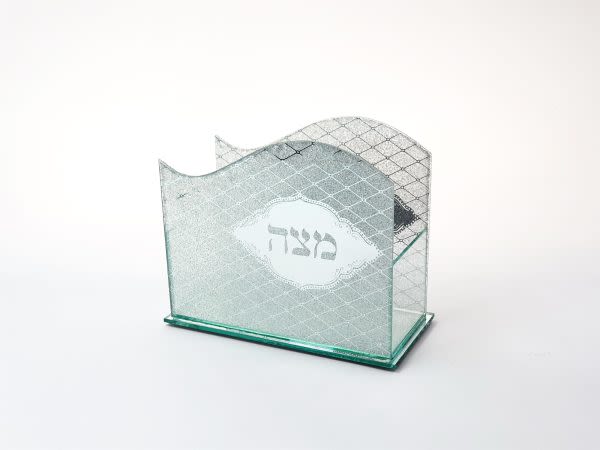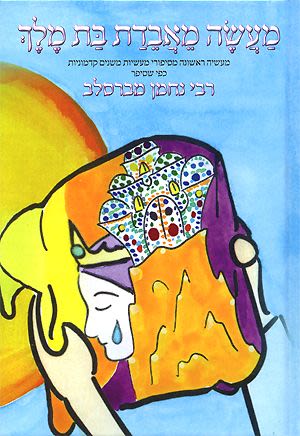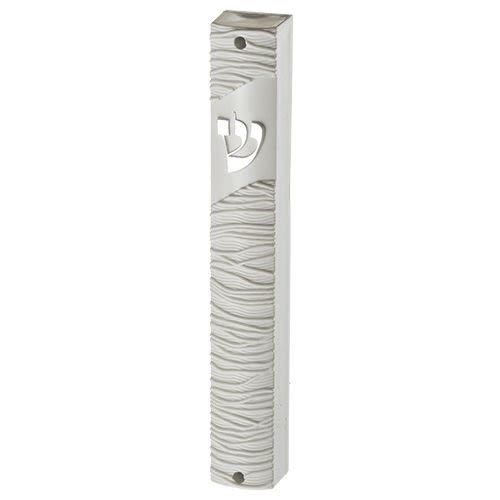
We Need Problems?
If a “believing” Jew is going to get bent out of shape when he gets a speeding ticket, how is he going to react when he must face a really serious challenge to his faith?

What have most of us been trained to say when we get a parking ticket or we lose our wallet or when a family heirloom falls down and shatters into a thousand pieces? We say: “Gam zu latova,” which means “this too is for the very best! You can hear people in Jewish communities saying this expression after things happen to them that don’t exactly make them happy. What I wonder is: do they really believe that everything is for the best? And if they really do believe that “it’s for the best” that the dinner shriveled up and turned black – how much to they really believe it?
The saying “this too is for the best” is based on a foundational spiritual principle that everything comes from G-d and that everything that G-d does is for the best. So it follows that when “bad” things happen to “good” people, that G-d surely placed some kind of positive intention in that “bad” event. And when we recognize what that “positive intention” is, then the growth that we can achieve from that event or problem will catapult our growth to a level far beyond where we could have ever grown to if we had never been  “blessed” with that nasty experience.
“blessed” with that nasty experience.
It might not seem to make a huge difference to you whether or not someone can find a “positive intention” to explain why their toaster blew up, or why the neighbor took their parking space, but what about when people get hit with “big stuff” like trauma, depression, divorce, or G-d forbid health problems? If a “believing” Jew is going to get bent out of shape when he gets a speeding ticket, how is he going to react when he must face a really serious challenge to his faith?
Consider the following example:
A young man suffers from dozens of different types of fears which keep him from being able to use his talents for learning Torah and living a normal life. He has fears of colors (particularly the color red), fears of people, fears of sounds of motors, fears of refrigerators, fears of feet, fears of hands, fears of skin, fears of fear itself- you name the fear, and he’s got it!
After we spent a few minutes getting centered in ourselves physically, emotionally and spiritually, I asked him if there was a place in his body where he seemed to feel these fears the most? He pointed to his stomach.
I asked him if his creative mind could form some type of symbol or image that stood for the fears that were being expressed as discomfort in his stomach. He said that it was an image of a “demon” that was sadistically squeezing his stomach together with his lizard-like hands.
I asked him how strong the discomfort was on a scale of 0-10 where “0” is no pain and “10” is the most pain that he could imagine. He said it was about an “8.”
I asked if his creative mind would be willing to tune into his faith that some type of resource would be sent to his mind: a great Rabbi from history (he is a Torah scholar), an ancestor, a mentor, a loved-one that could help him to transform the demon?
He smiled and said that the angel Raphael (the angel of healing) had come to him.
“Tell your fears to the angel,” I said.
So he described his fears to the angel and told him how they were ruining his life.
“How does the angel answer you?” I asked.
He says: “You’ll be safe. You can go back to learning in yeshiva…the noise will become music to you… you will feel at one with the great stream of Torah learning that is supporting the world…you belong amongst the many scholars there…it’s a great merit for you to learn in the biggest yeshiva in the world… the sounds will no longer frighten you… instead they will strengthen you…you’ll feel connected to everyone who is there.”
He was looking pretty happy with what the angel was telling him, so I asked him if his stomach felt any better?
“What number comes to you now?”
He answered, “2.” (His fear had reduced from an “8” to a “2”)
He asked me if he should ask the angel to kill the demon for him?
I asked him if he believed that everything, even the demon had some type of positive purpose? He said that he did believe this.
“So ask the angel if he’ll tell you what the positive intention of the demon has been? What is the protective function of these fears?” (Granted the demon was creating havoc in his life. After all it’s rather difficult to open your eyes in the morning and not see many colors unless you wear very dark glasses but he agreed that G-d couldn’t be doing this to him without a reason)
The angel told him that the fears were meant to protect him.
He said back to the angel that the fears were not making him feel protected at all.
The angel answered him that he knew this, but that he had needed that demon to realize that without Hashem he would never rest from his fears. The main function of the fears was to protect him by showing him that he was cut off from Hashem. By reconnecting to Hashem he would come to believe that Hashem wanted to send him the power that he needed, and with Hashem’s power surging through his nervous system, he would no longer need all those strange types of fears.
I told him to thank the fears for trying to protect him and to ask the angel how he could feel safe and secure without having that demon squeezing on his stomach all the time. The angel told him that he would need to start by traveling on a bus (where in Israel, noise and people usually go together).
He asked the angel if he would stay with him while he was on the bus?
The angel said that he would stay with him for as long as he needed him; he would stay with him when he was around people; he would stay with him when he was seeing colors; he would stay with him when he was hearing the sounds of motors – there was just one proviso, said the angel – “you must believe in me and in the One who sent me.”
That very day, he boarded a crowded noisy bus and said that the people and the sound of engine didn’t bother him at all. He felt the presence of the angel the whole time. Since then his fears have continued to diminish in proportion to his level of emuna. I expect, with G-d’s help that he’ll be back in yeshiva by the end of this month.
Emuna Coaching looks for the positive aspects of problems and symptoms. It sees the problem as evidence that something is “waking up” in the life of the person. While secular coaching programs teach people how to “cope” with the problem or “get rid” of the problem. We teach people how to transform the problem into a solution. In our view, the problem itself is the only means though which people can undergo the deep transformation that they need to go through in order to reach their full potential for happiness and achievement.












Tell us what you think!
Thank you for your comment!
It will be published after approval by the Editor.